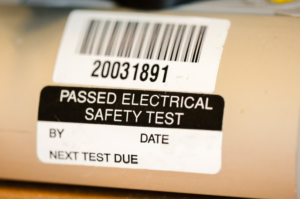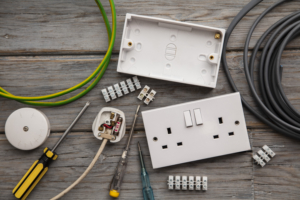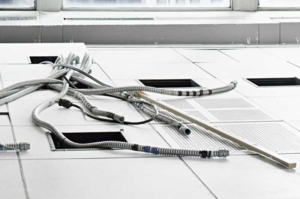A Guide to Electrical Safety in the Office
The number one service required in all offices is electricity. With an electricity supply in place you can begin to build your operations and processes. But electricity is dangerous. Therefore, an office which has poorly maintained and installed equipment can represent a major health and safety risk. Not only is there the risk or electric shocks and burns, but there is even the potential for death. Accordingly, it’s crucial that you understand electrical safety in the office.
What Are the Electrical Safety Risks in the Office?
The sheer range of electrical devices used in an office means that numerous safety risks are present. The most common ones to be found are:
- Damaged Cables: Electrical cables are always coated with a protective covering, but these materials are prone to wear and tear. And, given the busy nature of offices, it doesn’t take long for a cable to become frayed. This can expose the live wire and present a major risk of electric shock to anyone who encounters it. Additionally, the heat spikes created in the wiring by a damaged cable can easily lead to a fire.
- Overloaded Outlets: An electrical outlet has limits to the amount of electricity it can carry. Overloading an electrical outlet will initially result in excess heat being generated within the system. Over time, however, this heat will damage the wiring system which, in turn, has the potential to start a fire.
- Cracked Electrical Outlet: Due to the presence of office furniture – which can regularly be moved around the office – there’s a significant risk of electrical outlets receiving impact damage. This can leave the facia of outlets cracked and damaged. Users are then exposed to loose terminals which are liable to both giving an electric shock and igniting a fire.
- Not Turning Equipment Off: If an electrical device is not in use then it makes sense to turn it off. Unfortunately, many office workers fail to take this into account and see it as an unnecessary waste of time. However, by turning equipment off you are cutting the electrical supply to the device. This eliminates the risk of electrical shock and instantly makes the device safer.
- Extension Cords: The solution to too many electrical devices in an office is often an extension cord. But these are not without risk. It’s very easy to quickly overload an extension cord with devices that carry a high wattage demand. And, as with overloaded outlets, there is the risk of heat damage and fire. Instead, look to have additional outlets installed where required.
- Poor Ventilation: The power demands of electrical devices in offices can be very high. The result of this large demand can be the production of excess heat. Dispersing this heat becomes a problem when there is not adequate ventilation around a device or its power outlet. Heat levels can soon rise and lead to the risk of equipment failing or, in extreme scenarios, the risk of fire.
Electrical Hazards
Due to the number of risks presented by electrical equipment in an office, it’s recommended that electrical professionals regularly inspect your equipment. This protects not only your staff from safety, but ensures that your equipment remains productive.
For additional electrical articles please visit our main BLOG page here





